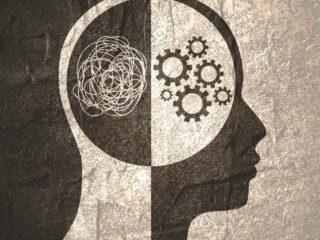It’s no secret that addiction devastates relationships and it is commonly referred to as a family disease. When people live in a household with an addicted family member, everyone else struggles to maintain balance in the home and cope with their loved one’s addiction. Not everyone copes in the same way, causing people to develop family roles when living in households battling addiction.
Types of Family Roles in an Addicted Household
People who are addicted to drugs or alcohol may lie, steal, and manipulate in order to continue their substance abuse. As a result, this causes a ripple effect, where family members desperately try to navigate a loved one’s addiction. While trying to cope, many people develop dysfunctional coping mechanisms and behavioral patterns that end up making the situation worse. Let’s take a look at 6 family roles that develop in addicted households.
The Caretaker/Enabler
The caretaker is also known as the enabler or the codependent. This is one of the most common roles assumed in addicted homes and there are entire support groups dedicated to this role. Usually assumed by the spouse or parent, the enabler struggles to create and enforce healthy boundaries with their addicted loved one. This person will make excuses for their loved one’s behavior, lie to keep that person out of trouble, and even enable the addict’s drug or alcohol use to continue.
Unfortunately, the caretaker usually thinks it is their responsibility to protect their addicted loved one, but this only ends up harming both the addict and the enabler. The enabler typically begins to lose his or her sense of self, experience depression or anxiety, and neglect his or her own well-being.
The Mascot
The mascot can be thought of as the class clown – someone who uses humor to relieve tense or stressful situations. This role, which is typically assumed by a younger child, revolves around making others laugh to help the family and the mascot themselves cover up the pain they are feeling. Of course, laughter is important during difficult times, but the mascot takes their humor to the next level by using it to avoid feelings, confrontation, and stress.
When the humor stops working, the mascot might struggle to cope with chaos in the household. As a result, the person who plays the mascot role often turns to drugs or alcohol to cope – further exacerbating the deadly cycle of addiction in the family.
The Hero
The hero is similar to the caretaker as this person attempts to cover up the addict’s behavior in order to restore a sense of normalcy and stability to the family unit. This role is usually assumed by an older child who tries to overachieve in everything that they do. Most people would describe the hero role as people who are extremely responsible and self-sufficient, but the hero typically maintains these qualities at a heavy expense of their own internal peace.
While desperately trying to make the family seem normal, the hero may struggle to live up to the goals they set for themselves. These individuals are typically prone to suffering from anxiety and chronic stress. Like the caretaker, this person’s actions end up enabling the addict rather than helping them.
The Scapegoat
The scapegoat is the exact opposite of the hero – this person is usually a problem child who acts out in defiance or aggressive behaviors. Whether this person acts out in violence, promiscuity, or general rule-breaking behaviors, the scapegoat often distracts the family from the addict and ends up taking all of the blame. With much of the blame and attention being directed towards the scapegoat, the addicted family member is left to continue abusing drugs or alcohol without intervention.
The Lost Child
The lost child is a role typically assumed by a middle or young child who feels invisible in the household. This child is usually quiet, shy, and introverted – not requiring a lot of attention from the rest of the family. As a result, as more and more attention and time are dedicated to the addict, this child becomes lost in the chaos of the household.
Due to this chaos, the lost child might struggle to make decisions, have a hard time developing meaningful relationships with others, and isolate themselves from their loved ones. This person may also self-medicate or experience mental illness when they get older as a result of not being able to cope with addiction in the household.
The Addict
The addict is just what it sounds like – the person who is battling drug or alcohol addiction and around whom the other family roles revolve. Even though the addict causes a lot of chaos in the household, they may not realize it. In fact, the addict might be in denial that he or she has a problem at all. Furthermore, the addict doesn’t always realize the ways in which they are hurting their family and causing dysfunction. The addict might blame others for their problems, take advantage of their family’s roles, and continue engaging in dangerous behaviors until the family intervenes.
Breaking Family Roles and Healing from Addiction Together
Do any of these roles sound like you or someone else in your household? If so, know that you’re not alone. More than 25 million people across the nation suffer from drug or alcohol abuse – and each of those people has family members or friends who are addicted. Other people have dealt with their loved one’s addiction in the same way that you and your family have and they’ve overcome their difficulties.
Whether you’re looking to stage an intervention for your loved one or participate in family therapy for addiction, our substance abuse treatment experts in Ohio can help you start on the right path. We’re not only dedicated to helping people heal from addiction – we’re dedicated to providing resources to family members who are struggling as well. If you have a family member struggling from addiction, contact us today.







